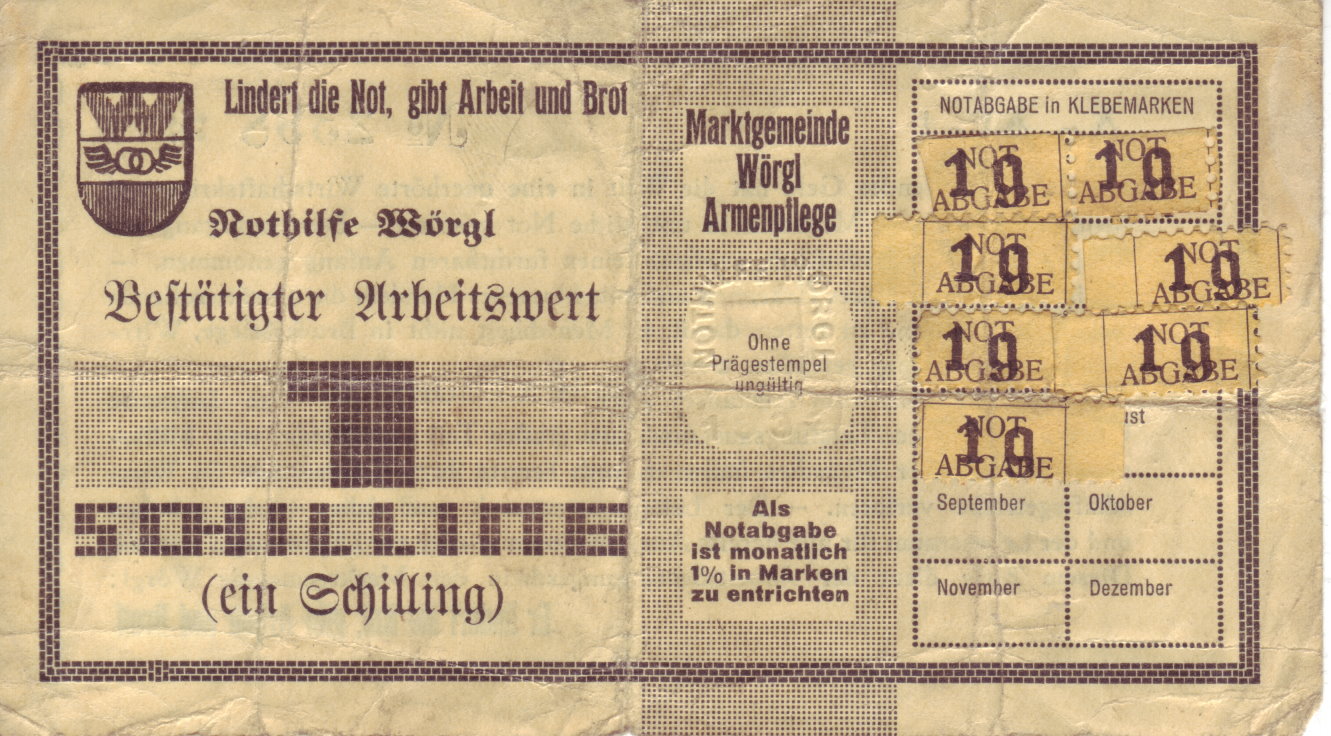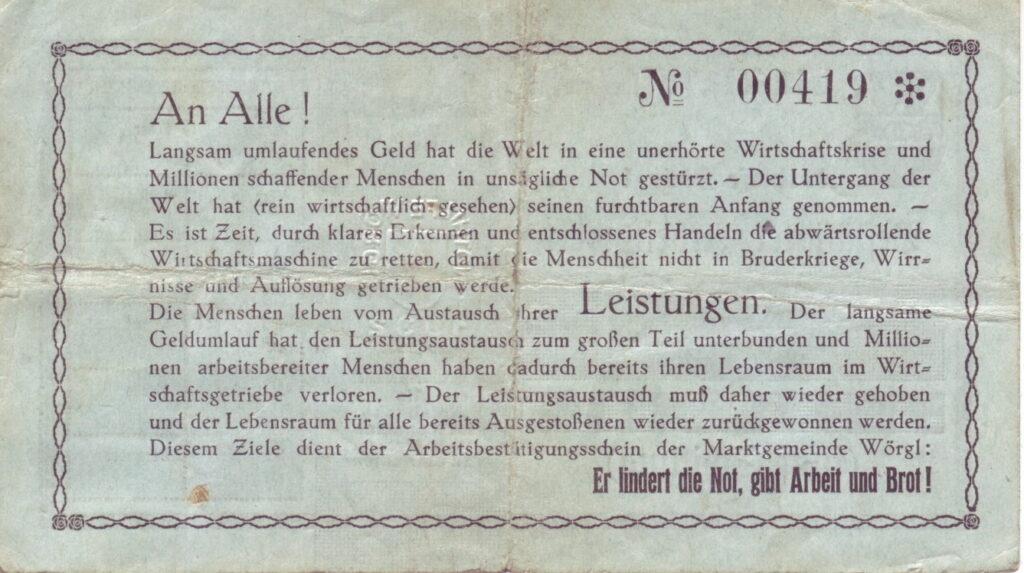The Miracle of Wörgl: A Historical Experiment in Monetary Reform

In the midst of the Great Depression, Wörgl, a small Austrian town, implemented a bold and unconventional monetary experiment that became known as the “Miracle of Wörgl.” Guided by the principles of economist Silvio Gesell, the town introduced a local currency called Schwundgeld (“melting money”) to stimulate its economy. Though short-lived, this experiment left a lasting impression on the discourse around alternative economic systems and monetary reform.
A Visionary Mayor and the Birth of Schwundgeld
In 1932, the unemployment rate in Austria was alarmingly high, particularly in Wörgl. The town’s mayor, Michael Unterguggenberger, sought a solution to address the economic despair. Inspired by the ideas of Silvio Gesell, he introduced a local complementary currency that lost value (1% monthly) unless spent quickly. This “demurrage” feature discouraged hoarding and encouraged circulation. The currency was not allowed to earn interest, preventing speculative lending.
A Broader Context for Schwundgeld
Silvio Gesell’s theory, articulated decades earlier, argued that a currency subject to demurrage would align more closely with nature’s rhythms, eliminating artificial scarcity. Gesell had advocated for “free money” (Freigeld) and a broader economic philosophy known as “free economy” (Freiwirtschaft) to mitigate the concentration of wealth and create a more egalitarian society. Wörgl’s implementation was among the most notable attempts to test these ideas in practice.
Two Roads, One Budget: The Solution with a Twist
Facing limited funds, Unterguggenberger proposed the Schwundgeld system. Workers were paid in the local currency, which businesses and residents agreed to accept. This newfound liquidity allowed the town to complete necessary infrastructure projects, including roads, a bridge, and even a ski jump. Signs proudly proclaimed, “Built with Wörgl money,” underscoring the community’s accomplishment.
Reviving the Local Economy
The currency circulated rapidly. Workers spent it on essential goods, and merchants used it to pay taxes and purchase local supplies, keeping wealth within the town. The velocity of money—a key economic indicator—was significantly boosted. As a result, Wörgl’s unemployment dropped sharply, and residents enjoyed a rejuvenated economy.
Ripple Effect: Economic Revival and Expansion
News of Wörgl’s success spread quickly. More than 200 other towns began exploring or implementing similar systems. The concept demonstrated that local currencies could thrive in tandem with national money, fostering resilience during economic downturns【4】.
Backlash: The End of the Experiment
Despite its success, the experiment faced resistance from Austria’s central bank. Fearing competition and a challenge to its monopoly on monetary issuance, the bank petitioned the courts to outlaw Schwundgeld. In late 1933, the experiment was forcibly ended. Unemployment surged once more, reversing Wörgl’s progress.
Key Lessons from the Miracle of Wörgl
- Innovation in Crisis: Wörgl demonstrated how alternative monetary systems could address economic challenges and empower communities.
- Challenges of Implementation: The resistance from centralized financial authorities highlighted the systemic hurdles to monetary reform.
- Temporary Impact: Without broader structural change, localized initiatives remain vulnerable to external pressures.

To Everyone!
Slowly circulating money has plunged the world into an unprecedented economic crisis and driven millions of industrious people into unspeakable hardship.
The downfall of the world (economically speaking) has begun its terrifying course.
It is time to rescue the economic machinery rolling downhill through clear understanding and determined action so that humanity is not driven into fratricidal wars, confusion, and dissolution.
People live through the exchange of their contributions.
The slow circulation of money has largely hindered this exchange, leaving millions of working people without their place in the economy.
The exchange of contributions must therefore be revitalized, and the economic space for all those already cast out must be reclaimed.
To this end, the Certified Labor Note of the Market Town of Wörgl serves:
It alleviates hardship, provides work, and ensures bread!
Further Reading and Research
English:
- The Power of Demurrage: the Wörgl Phenomenon:
https://tronda.folk.ntnu.no/articles/worgl-money.pdf - The Free Economy Experiment of Woergl (1932-1933) – Unterguggenberger Institut:
https://unterguggenberger.org/the-free-economy-experiment-of-woergl-1932-1933/
German:
- Wörgler Schwundgeld – Wikipedia:
https://de.wikipedia.org/wiki/W%C3%B6rgler_Schwundgeld - Währungsexperiment Wörgl: dem Geld Beine machen:
https://martin-ebner.net/topics/money/waehrungsexperiment-woergl - Unterguggenberger Institut – Freigeld / Währungsdesign / Blockchain:
https://unterguggenberger.org/
The discussion is here:
https://yesnotes.info/topic/the-miracle-of-worgl-a-historical-experiment-in-monetary-reform/